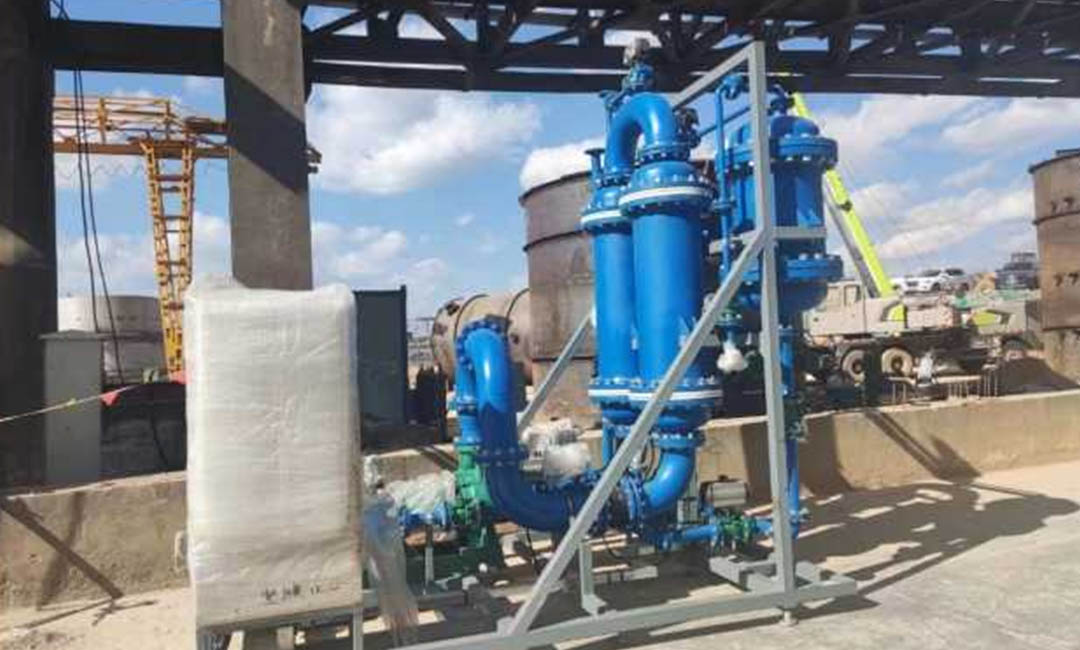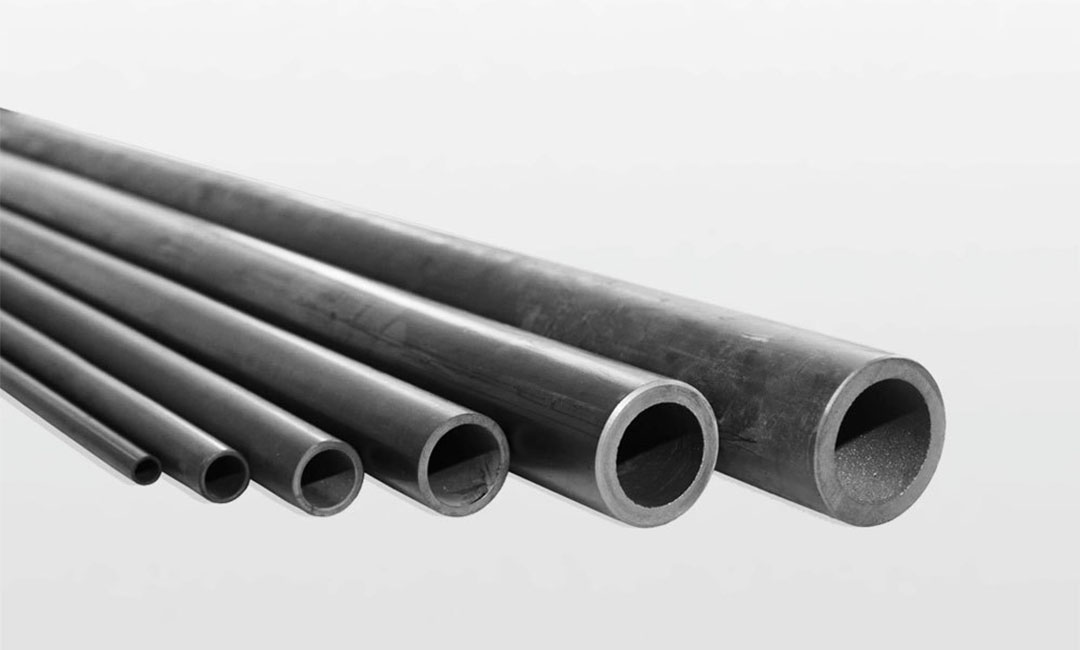Enhanced Filtration Efficiency
Wastewater management is a critical aspect of modern society, as the proper treatment and disposal of wastewater is essential for protecting the environment and public health. One key component of wastewater treatment systems is filtration, which removes impurities and contaminants from the water before it is discharged back into the environment. Traditional filtration methods often rely on porous materials such as sand or activated carbon, but these materials can be inefficient and prone to clogging.

In recent years, tubular ceramic membranes have emerged as a promising alternative for wastewater filtration. These membranes are made from a durable and chemically resistant material, which allows them to withstand harsh operating conditions and maintain their filtration efficiency over time. The unique structure of tubular ceramic membranes also allows for a higher surface area compared to traditional flat-sheet membranes, resulting in improved filtration efficiency and reduced energy consumption.
One of the key advantages of tubular ceramic membranes is their ability to achieve a high level of filtration efficiency. The small pore size of these membranes allows them to effectively remove particles, bacteria, and other contaminants from the water, resulting in a cleaner and safer effluent. This high level of filtration efficiency is essential for meeting stringent regulatory requirements and ensuring that the treated wastewater meets quality standards before being discharged into the environment.
Another benefit of tubular ceramic membranes is their resistance to fouling and clogging. Traditional filtration methods are often prone to fouling, which occurs when particles and contaminants accumulate on the surface of the membrane and reduce its effectiveness. Tubular ceramic membranes are less susceptible to fouling due to their smooth and non-porous surface, which prevents particles from adhering to the membrane and allows for easy cleaning and maintenance.
Furthermore, tubular ceramic membranes offer a longer lifespan compared to traditional filtration materials. The durable nature of ceramic materials allows these membranes to withstand harsh chemicals, high temperatures, and frequent cleaning cycles without degrading or losing their filtration efficiency. This extended lifespan not only reduces maintenance costs but also minimizes downtime and ensures continuous operation of the wastewater treatment system.
In addition to their enhanced filtration efficiency, resistance to fouling, and longer lifespan, tubular ceramic membranes also offer a more sustainable and environmentally friendly solution for wastewater management. The production of ceramic materials requires less energy and resources compared to traditional filtration materials, making them a more eco-friendly option for wastewater treatment. Furthermore, the ability of tubular ceramic membranes to achieve a high level of filtration efficiency means that less energy is required to treat the wastewater, resulting in lower operating costs and reduced environmental impact.
Overall, tubular ceramic membranes are a valuable technology for improving wastewater management systems. Their enhanced filtration efficiency, resistance to fouling, longer lifespan, and sustainability make them an ideal choice for meeting the growing demands of wastewater treatment. By incorporating tubular ceramic membranes into existing filtration systems, municipalities and industries can achieve cleaner and safer effluent, comply with regulatory requirements, and contribute to a more sustainable future for water management.
Reduced Energy Consumption
Wastewater management is a critical aspect of modern society, as the proper treatment and disposal of wastewater is essential for protecting the environment and public health. Traditional wastewater treatment methods often involve the use of large amounts of energy and chemicals, which can be costly and environmentally damaging. However, advancements in technology have led to the development of more sustainable and efficient wastewater treatment solutions, such as tubular ceramic membranes.
One of the key benefits of tubular ceramic membranes is their ability to reduce energy consumption in wastewater treatment systems. These membranes are made from a durable and highly efficient material that allows for the separation of contaminants from water with minimal energy input. Unlike traditional filtration methods that rely on the use of pumps and chemicals to remove impurities, tubular ceramic membranes operate through a process known as microfiltration, which uses the natural flow of water to separate particles based on size.
By utilizing tubular ceramic membranes in wastewater treatment systems, operators can significantly reduce the amount of energy required to treat and purify water. This not only helps to lower operating costs but also reduces the carbon footprint of the treatment plant, making it a more sustainable and environmentally friendly option. In addition, the longevity of tubular ceramic membranes means that they require less frequent replacement compared to other filtration methods, further reducing energy consumption and maintenance costs over time.
Furthermore, tubular ceramic membranes offer a higher level of efficiency and reliability compared to traditional filtration methods. The unique design of these membranes allows for a more precise separation of contaminants, resulting in cleaner and safer water output. This is particularly important in industries where strict water quality standards must be met, such as in food and beverage production or pharmaceutical manufacturing.

In addition to reducing energy consumption, tubular ceramic membranes also offer improved performance in terms of water treatment. These membranes are highly resistant to fouling and clogging, which can be common issues with other filtration systems. This means that operators can maintain a consistent level of water quality without the need for frequent maintenance or cleaning, saving both time and resources in the long run.
Overall, the use of tubular ceramic membranes in wastewater management systems represents a significant advancement in the field of water treatment. By reducing energy consumption, improving efficiency, and ensuring reliable performance, these membranes offer a sustainable and cost-effective solution for treating wastewater in a variety of industries. As technology continues to evolve, it is likely that tubular ceramic membranes will play an increasingly important role in helping to protect our environment and ensure the availability of clean water for future generations.
Improved Water Quality
Water is one of the most essential resources on our planet, and ensuring its quality is crucial for the health and well-being of both humans and the environment. Wastewater management systems play a vital role in maintaining water quality by treating and purifying wastewater before it is released back into the environment. One technology that has been gaining popularity in recent years for its effectiveness in wastewater treatment is tubular ceramic membranes.
Tubular ceramic membranes are a type of filtration technology that uses porous ceramic tubes to separate contaminants from water. These membranes are known for their high durability, chemical resistance, and ability to produce high-quality treated water. By using tubular ceramic membranes in wastewater treatment plants, water quality can be significantly improved, leading to a cleaner and safer environment for all.
One of the key advantages of tubular ceramic membranes is their high filtration efficiency. The porous structure of the ceramic tubes allows for the removal of a wide range of contaminants, including bacteria, viruses, and suspended solids. This results in water that is free from harmful pollutants and safe for discharge into rivers, lakes, or oceans. Additionally, tubular ceramic membranes have a long lifespan and require minimal maintenance, making them a cost-effective solution for wastewater treatment plants.
Another benefit of tubular ceramic membranes is their ability to operate at high temperatures and pressures. This makes them ideal for treating industrial wastewater, which often contains high concentrations of contaminants that require specialized treatment. By using tubular ceramic membranes, industrial facilities can effectively remove pollutants from their wastewater streams and comply with environmental regulations.
In addition to their filtration efficiency and durability, tubular ceramic membranes are also environmentally friendly. Unlike traditional filtration methods that use chemicals or produce harmful by-products, ceramic membranes are a sustainable and eco-friendly solution for wastewater treatment. By using tubular ceramic membranes, wastewater treatment plants can reduce their carbon footprint and minimize their impact on the environment.
Overall, tubular ceramic membranes offer a range of benefits for improving water quality in wastewater management systems. From their high filtration efficiency to their durability and environmental sustainability, these membranes are a valuable tool for ensuring clean and safe water for communities around the world. By incorporating tubular ceramic membranes into wastewater treatment plants, we can protect our water resources and create a healthier environment for future generations.
In conclusion, tubular ceramic membranes are a powerful technology that can significantly improve wastewater management systems and enhance water quality. With their high filtration efficiency, durability, and environmental sustainability, these membranes offer a reliable and cost-effective solution for treating wastewater and protecting our water resources. By investing in tubular ceramic membranes, we can create a cleaner and safer environment for all.

